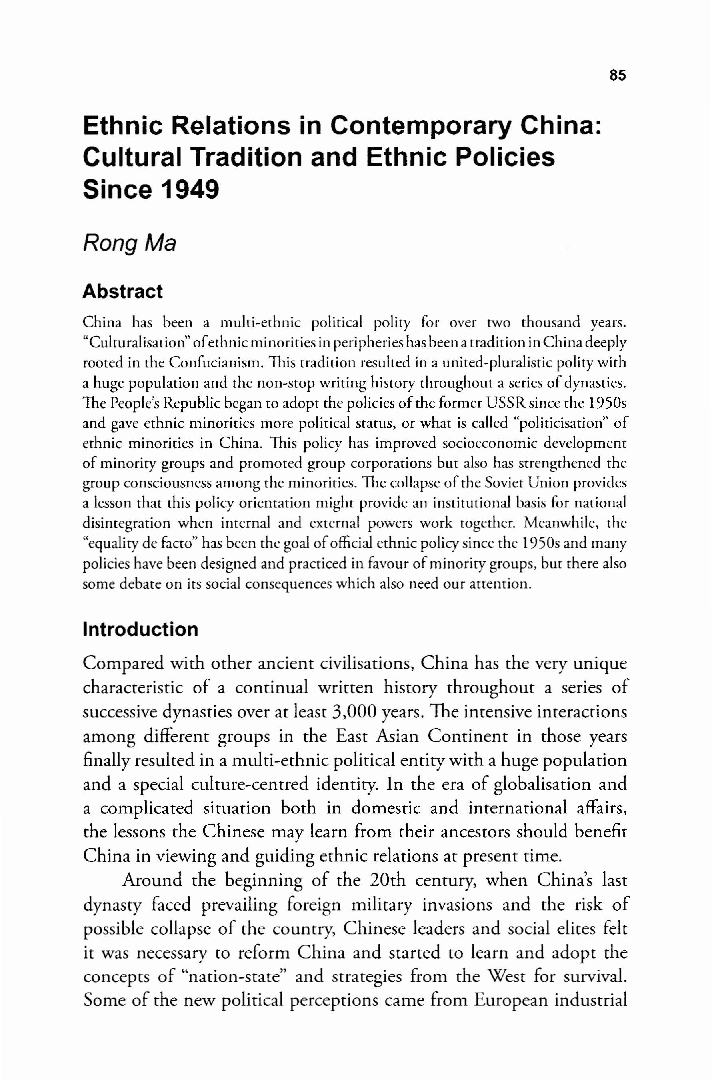| Article ID | Journal | Published Year | Pages | File Type |
|---|---|---|---|---|
| 1061613 | Policy and Society | 2006 | 24 Pages |
China has been a multi-ethnic political polity for over two thousand years. “Culturalisation” of ethnic minorities in peripheries has been a tradition in China deeply rooted in the Confucianism. This tradition resulted in a united-pluralistic polity with a huge population and the non-stop writing history throughout a series of dynasties. The People's Republic began to adopt the policies of the former USSR since the 1950s and gave ethnic minorities more political status, or what is called “politicisation” of ethnic minorities in China. This policy has improved socioeconomic development of minority groups and promoted group corporations but also has strengthened the group consciousness among the minorities. The collapse of the Soviet Union provides a lesson that this policy orientation might provide an institutional basis for national disintegration when internal and external powers work together. Meanwhile, the “equality de facto” has been the goal of official ethnic policy since the 1950s and many policies have been designed and practiced in favour of minority groups, but there also some debate on its social consequences which also need our attention.
